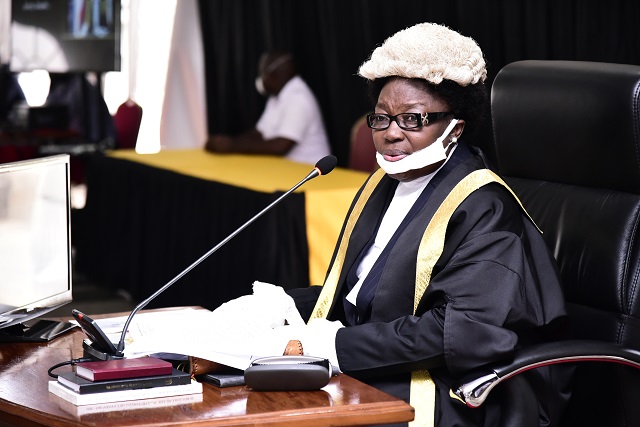
Kampala, Uganda | THE INDEPENDENT | The Speaker of Parliament Rebecca Kadaga has instructed the Minister of Justice and Constitutional Affairs Ephraim Kamuntu to prepare a Bill to amend Article 78 of the Constitution to provide for elderly persons among the marginalized groups that need representation in parliament.
Article 78 of the constitution provides for the composition of Parliament and it currently recognizes members directly elected to represent constituencies, one woman representative for every district, representatives of the army, youth, workers, and persons with disabilities.
Kadaga’s directive followed a presentation of a motion by the State Minister of Justice and Deputy Attorney General Jackson Kafuuzi seeking the approval of additional representation of the elderly in Parliament without necessarily first amending the Constitution.
Cabinet last week approved the creation of five positions for Members of Parliament representing the elderly from the age of 60, as a special interest group.
Kafuzi’s motion attracted procedural matters from a section of MPs who questioned how the matter was being handled. The Shadow Attorney-General Wilfred Niwagaba said that Parliament cannot amend Article 78 with a mere motion.
Kalungu West MP Joseph Ssewungu also warned that any resolution of parliament to add a new category on the composition of parliament would attract litigation.
Following consultation with Justice and Constitutional Affairs Minister Ephraim Kamuntu and Kafuuzi, Kadaga ruled that government prepares a Bill to amend the Constitution to provide for elderly representation.
Minister Kamuntu earlier told journalists that it was important to include the elderly persons in parliament to address ‘historical imbalances.’
“During the constitution-making process, the people of Uganda emphasized that one of the main principles that should govern the composition and functioning of parliament is participatory democracy and inclusiveness and that whereas the legislature should be composed mainly of representatives directly elected by the people, due regard should be made for the representation of special interest groups that had been marginalized by society,” he said.
Kadaga also notified MPs to attend the Thursday plenary session in big numbers so that they participate in a vote to review the representation in Parliament.
This is concerning another motion presented on the floor of parliament by the government seeking a review of representation to provide for the election of Woman MPs in cities and confirm the maintenance of the earlier representation of special interest groups including the 10 UPDF representatives, 5 youth representatives, 5 representatives for workers, and 5 representatives for Persons with Disabilities.
Kadaga said that for the motion to be approved, they need 244 votes out of the current total 457 members of parliament. Currently, each plenary session attracts only 100 members following guidelines aimed at ensuring observance of physical distancing in the wake of the Covid-19 pandemic.
7 new cities became operational effective 1st July and if approved by parliament, these will each be expected to elect one Woman MP in addition to the 135 district female MPs.
This will see the number of female district representatives’ increase to 142 in the Eleventh Parliament.
Meanwhile, 15 new constituencies are pending approval by parliament and if approved, the total number of legislators in the Eleventh parliament will increase from the current 457 to 486.
******
URN
 The Independent Uganda: You get the Truth we Pay the Price
The Independent Uganda: You get the Truth we Pay the Price


